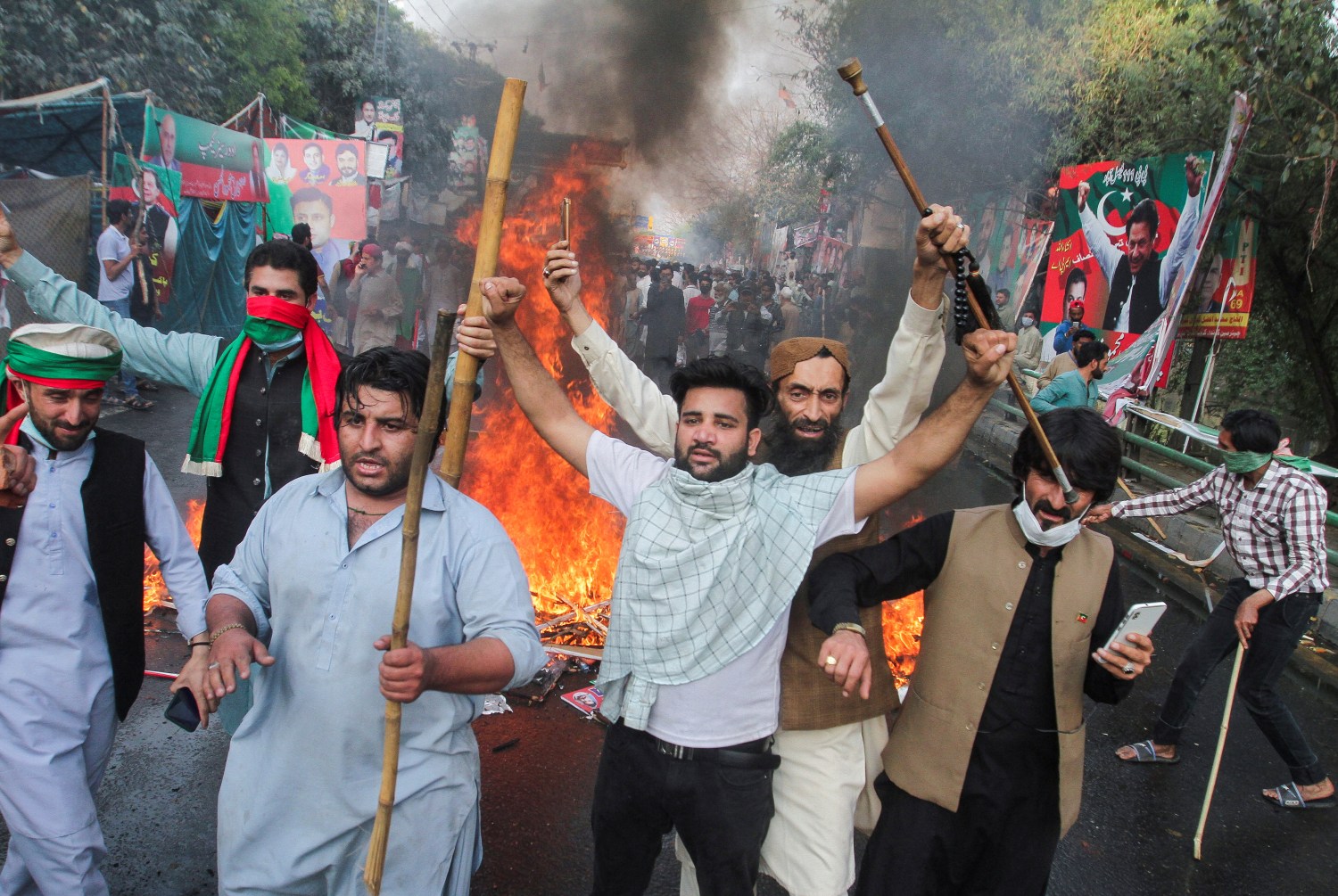
by Shah Khalid 23 November 2023
Pakistan has struggled with the menace of religious radicalization for years, but recent developments within its political arena have cast a dark shadow over the nation, revealing an alarming trend – the radicalization of politics. This transformation is a perilous departure from the realm of rational political discourse and poses a significant threat to the very foundations of Pakistan’s democratic system. This piece examines the alarming rise of political radicalization in Pakistan, investigating the underlying factors contributing to this worrying phenomenon and the potential ramifications it may unleash.
At the core of political radicalization lies the divisive ‘us versus them’ mentality, a dangerous worldview where individuals perceive themselves as virtuous and those with differing political affiliations as malevolent. This mindset fosters an environment of deep polarization, making constructive dialogue and compromise nearly impossible. In such a polarized atmosphere, the willingness to listen to opposing viewpoints diminishes, replaced by growing intolerance.
Traditionally, political parties in Pakistan have garnered support based on shared ideologies and articulated manifestos. However, in recent times, emotional loyalty has overshadowed these fundamental principles. Party supporters increasingly place their faith not in a careful evaluation of a party’s governance performance, economic policies, or policy implementation but rather in their emotional attachment to a particular party. This shift is particularly concerning as it erodes the bedrock of rational political discourse. Party loyalists often refuse to countenance any criticism of their chosen leaders, shutting themselves off from constructive dialogue. Simultaneously, political leaders engage in the unsavory practice of mudslinging, slurs, and name-calling, further deepening the divisions within the political landscape.
One disquieting facet of this radicalization is the rise of political cults. Political leaders are elevated to quasi-religious status through a combination of propaganda, whispered rumors, and widespread media portrayal. They are depicted as saviors and messiahs, supposedly equipped to address all of society’s ills. Supporters of these cults exhibit unwavering devotion to their leaders, often bordering on fanaticism. Within these cults, a rigid ‘us versus them’ narrative takes root, characterizing all opposition as malevolent forces that must be purged from society. The adoration and veneration of political figures are gaining momentum in Pakistan, further entrenching the rifts in the nation’s political landscape.
While the radicalization of politics in Pakistan is not a new phenomenon, it has been inflamed by various factors over the years:
Political Exclusion: The exclusion of genuine representatives from the political process has generated frustration and resentment among different sections of society.
Socioeconomic Disparities: Widening class-based and regional disparities have cultivated feelings of deprivation and alienation among Pakistan’s mercantile class, youth, and emerging middle and lower-middle classes.
Governance Failures: Many perceive that the ruling elite, predominantly composed of feudal and capitalist classes, has exploited national resources for personal gain, depriving the masses of their due share.
Conspiracy Theories: Pakistan’s penchant for embracing conspiracy theories and extremist views further amplifies the radicalization process.
Pent-Up Frustrations: The simmering frustration and pent-up emotions among the populace can be likened to a powder keg, waiting for a spark to ignite.
Conclusion
The radicalization of politics in Pakistan is a complex and multifaceted challenge with deep-rooted origins. While recent political events may have exacerbated the issue, it is not an entirely new phenomenon. The ‘us versus them’ mentality, emotional allegiance to leaders, and the emergence of political cults present formidable challenges to Pakistan’s democratic fabric. It is imperative for Pakistan’s policymakers to acknowledge the potential consequences of unchecked political radicalization. To address this grave issue, there must be a concerted effort to channel these pent-up feelings through democratic channels, promote open dialogue, and prioritize the welfare of the people. Failing to do so could unleash devastating consequences, underscoring the urgent need to address political radicalization as a top priority in Pakistan’s ever-evolving political landscape.
